‘beginr’ is a collection of useful functions for R beginners, including hints for the arguments of the ‘plot()’ function, self-defined functions for error bars, user-customized pair plots and hist plots, enhanced linear regression figures, etc.. This package could be helpful to R experts as well.
Installation
# stable version on CRAN
install.package("beginr")
# or development version on GitHub
devtools::install_github("pzhaonet/beginr")Quick Start
Functions as Memos
If you often forget the options for pch, lty, type, and col when you plot(), you can run plotpch(), plotlty(), plottype(), plotcolors(), and plotcolorbar(). No need to search the internet any more.
beginr::plotpch()
beginr::plotlty()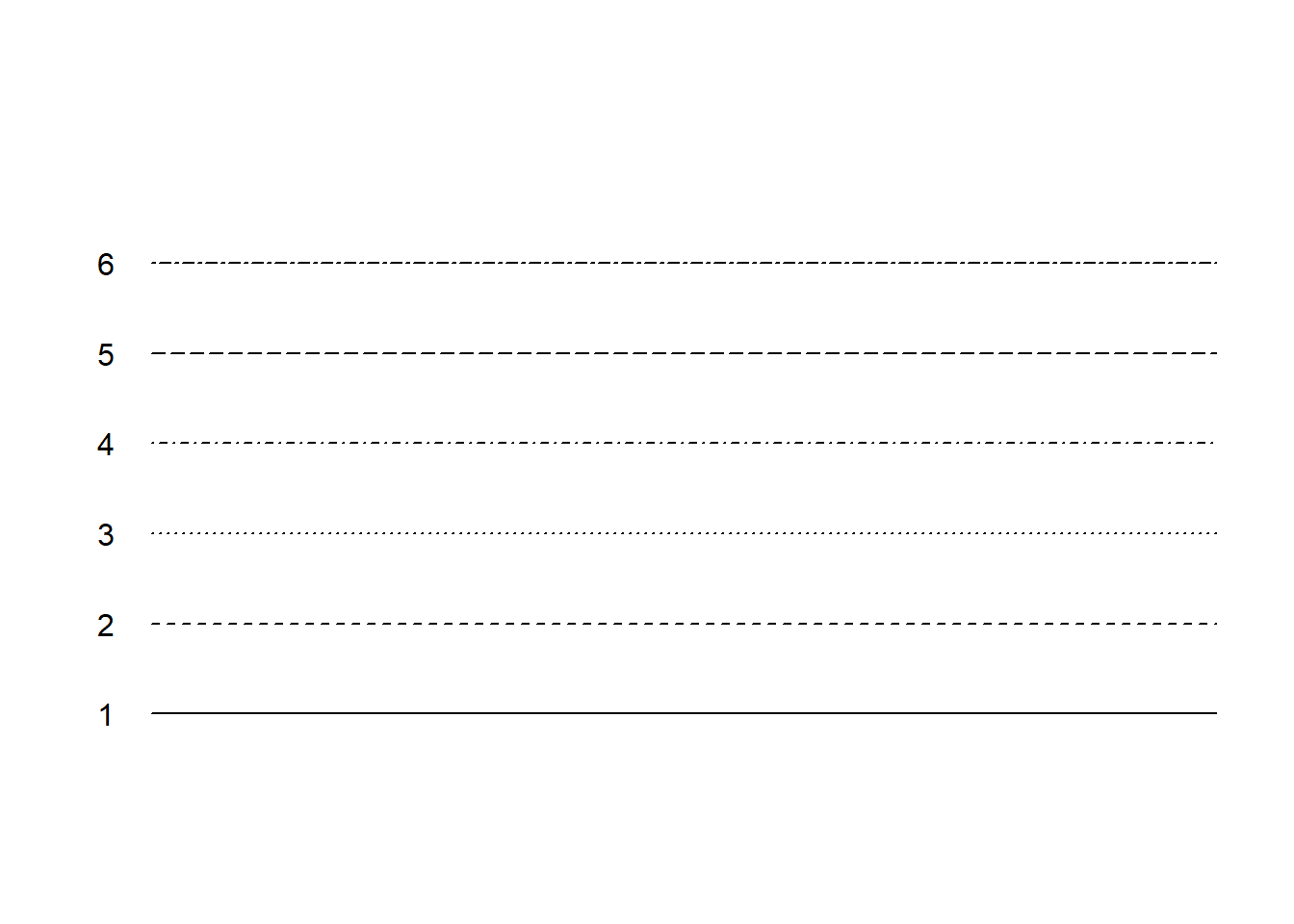
beginr::plottype()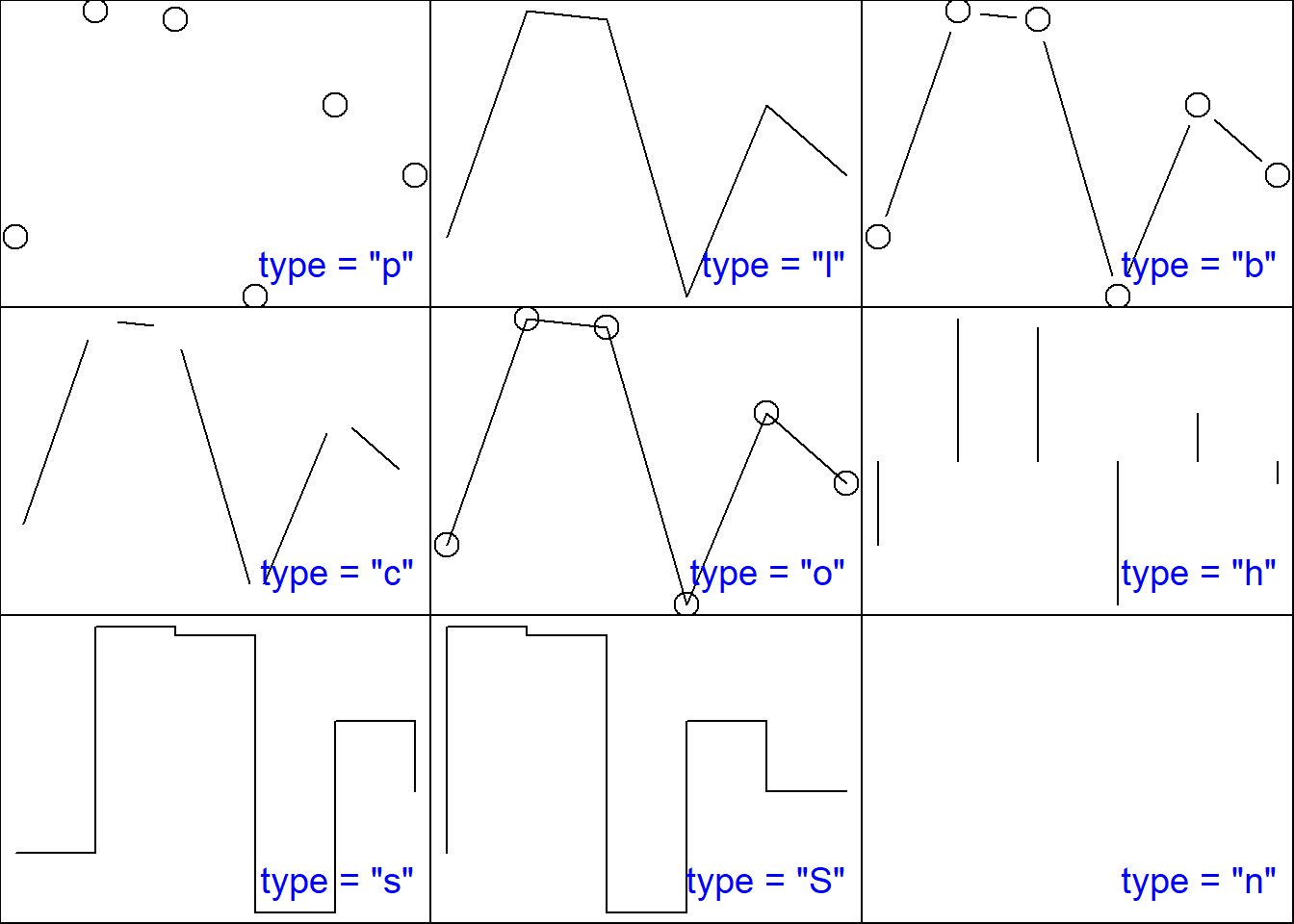
beginr::plotcolors()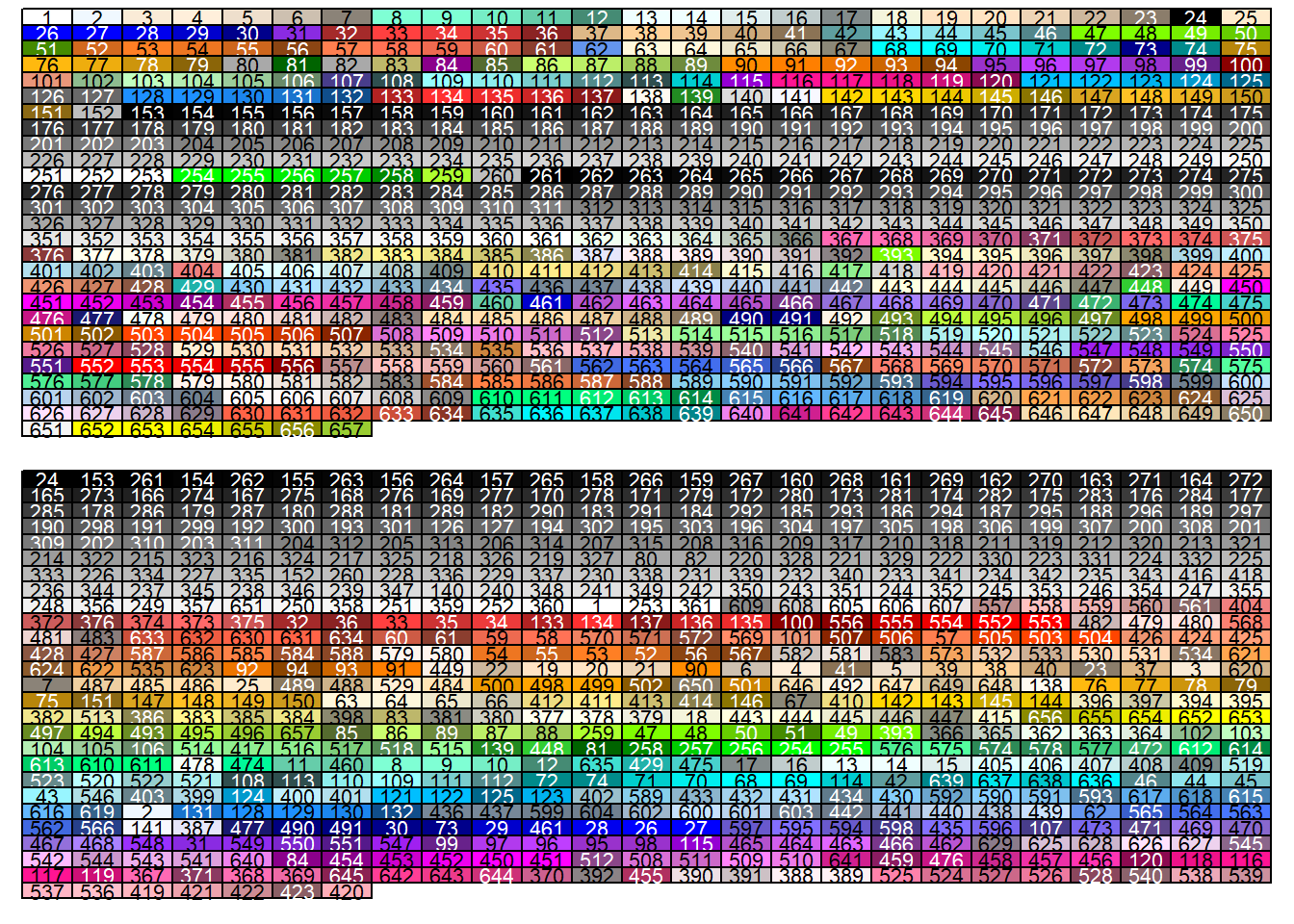
beginr::plotcolorbar()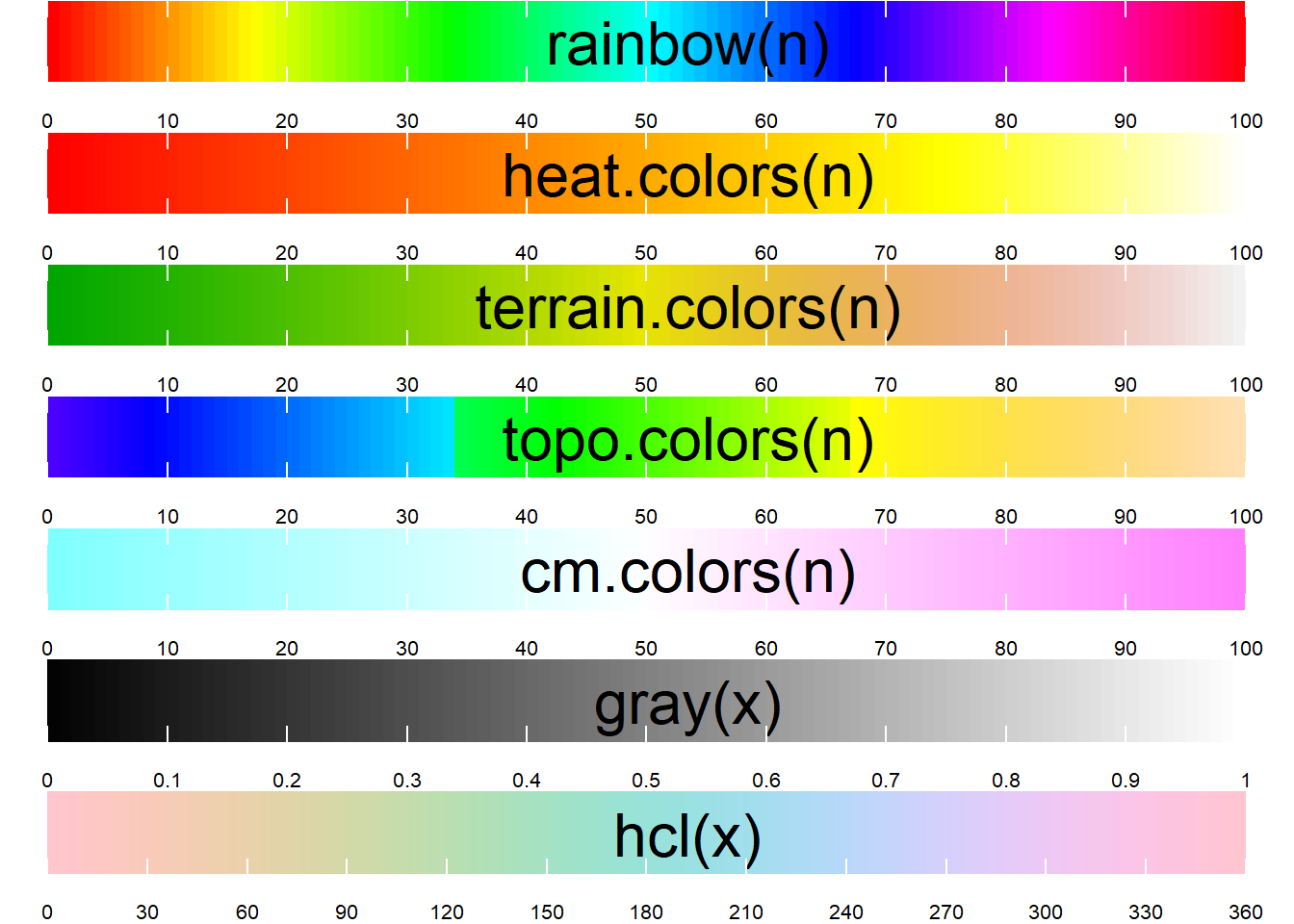
Functions for Easy Plotting
Linear regression is often used in scientific work, but it is annoying to display the results. In R you have to run lm(), plot(), abline(), text() and so on and so forth. Now with ‘beginr’ you only have to run plotlm().
x <- 1:10
y <- 1:10 + rnorm(10)
beginr::plotlm(x, y)
## [[1]]
## Estimate Std. Error t value Pr(>|t|)
## (Intercept) -0.8826021 0.59514844 -1.482995 1.763634e-01
## x 1.1693736 0.09591686 12.191533 1.899987e-06
##
## [[2]]
## [1] 0.9489254If you want to display the distribution of a data-set, use plothist(), which gives you a histogram with markers of the median, mean, quantiles, standard deviation, sample number and the skewness.
x <- rnorm(10000)
beginr::plothist(x)
## para value
## 1 min -3.9594329262
## 2 1q -0.6743155802
## 3 median 0.0151220580
## 4 3q 0.6806285656
## 5 max 4.1576382225
## 6 lower -2.7065331755
## 7 upper 2.7128461609
## 8 mean -0.0005589431
## 9 sd 1.0064399683I like pairs(), and ‘beginr’ gives more powerful features to plotpairs() and plotpairs2().
df <- data.frame(a = 1:10, b = 1:10 + rnorm(10), c = 1:10 + rnorm(10))
beginr::plotpairs(df)
beginr::plotpairs2(df)## [1] "p<0.01"## [1] "p<0.01"## [1] "p<0.01"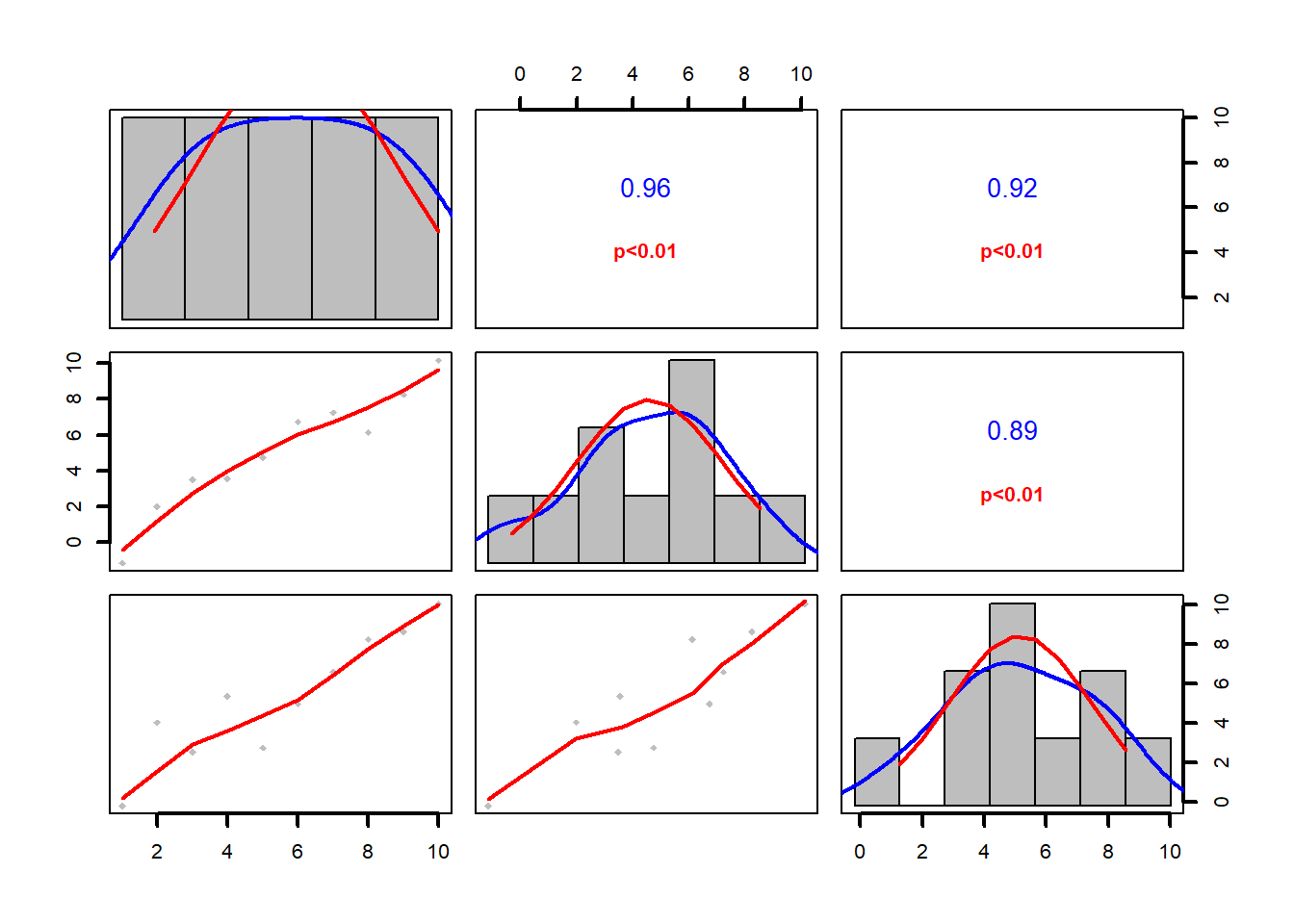
I often have to plot one independent variable (x) and multiple dependent variables (y1, y2, …, yn) in one 2-D coordinate system, or one dependent variable (y) against multiple independent variables (x1, x2, …, xn) with their error bars. Use dfplot() or dfplot2() in ‘beginr’.
x <- seq(0, 2 * pi, length.out = 100)
y <- data.frame(sin(x), cos(x))
yerror <- data.frame(abs(rnorm(100, sd = 0.3)), abs(rnorm(100, sd = 0.1)))
beginr::dfplot(x, y, yerror = yerror)
beginr::dfplot2(y, x, xerror = yerror)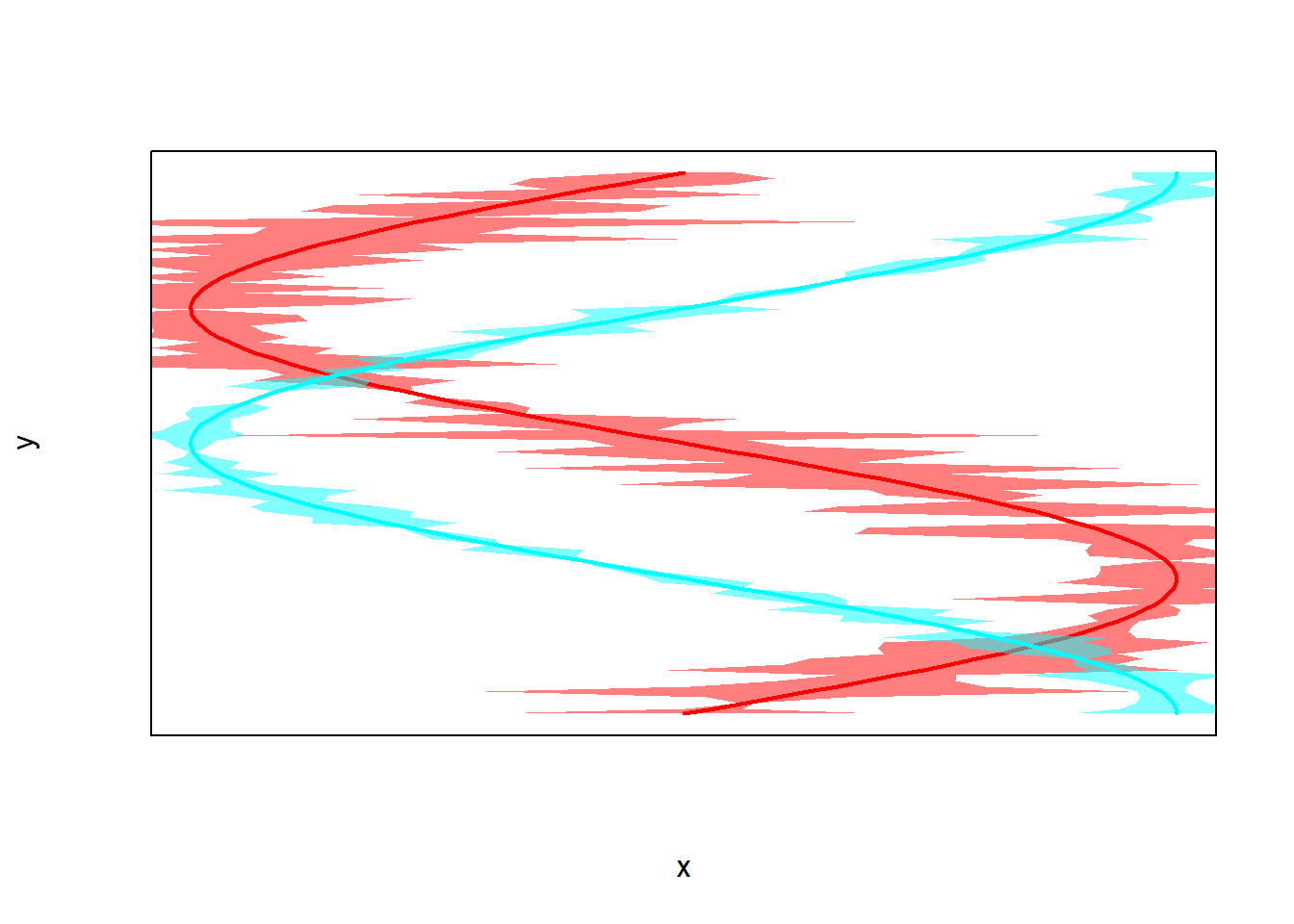
If you would like to add errorbars only, then use errorbar().
x <- seq(0, 2 * pi, length.out = 100)
y <- sin(x)
plot(x, y, type = "l")
beginr::errorbar(x, y, yupper = 0.1, ylower = 0.1)
Functions for Data Frames
lmdf() performs the linear regression between every two columns in a data frame.
df <- data.frame(a = 1:10, b = 1:10 + rnorm(10), c = 1:10 + rnorm(10))
beginr::lmdf(df)## x y r.squared adj.r.squared intercept slope Std.Error.intercept
## 1 a b 0.9630442 0.9584247 -0.7901086 1.1271749 0.4843895
## 2 a c 0.8568806 0.8389907 -0.3427519 1.0425054 0.9346580
## 3 b a 0.9630442 0.9584247 0.8783157 0.8543876 0.3749251
## 4 b c 0.8157952 0.7927696 0.6004724 0.8856059 0.9426967
## 5 c a 0.8568806 0.8389907 1.0688792 0.8219436 0.7466774
## 6 c b 0.8157952 0.7927696 0.4432909 0.9211717 0.9729768
## Std.Error.slope t.intercept t.slope Pr.intercept Pr.slope
## 1 0.07806644 -1.6311430 14.438661 0.14150586 5.177385e-07
## 2 0.15063377 -0.3667137 6.920795 0.72334232 1.219459e-04
## 3 0.05917360 2.3426432 14.438661 0.04722045 5.177385e-07
## 4 0.14878374 0.6369730 5.952303 0.54193651 3.410966e-04
## 5 0.11876434 1.4315142 6.920795 0.19016727 1.219459e-04
## 6 0.15475888 0.4556027 5.952303 0.66078732 3.410966e-04There are two functions as improvements of tapply() for factor calculation.
beginr::tapplydf()
beginr::tapplydfv()Functions for Reading and Writing files
readdir() reads multiple files into a list.
beginr::readdir()writefile() avoids overwriting the files which already exist.
beginr::writefile()list2ascii() saves a list as a text file.
alist <- list(a = 1:10, b = letters)
beginr::list2ascii(alist)Functions for Packages
bib() creates bibliographic entries as texts or a file (‘.bib’).
beginr::bib(pkg = c("mindr", "bookdownplus", "pinyin", "beginr"))## @Manual{R-beginr,
## title = {beginr: Functions for R Beginners},
## author = {Peng Zhao},
## year = {2017},
## note = {R package version 0.1.0},
## url = {https://github.com/pzhaonet/beginr},
## }
## @Manual{R-bookdownplus,
## title = {bookdownplus: Generate Varied Books and Documents with R 'bookdown' Package},
## author = {Peng Zhao},
## year = {2017},
## note = {R package version 1.2.2},
## url = {https://github.com/pzhaonet/bookdownplus},
## }
## @Manual{R-mindr,
## title = {mindr: Convert Files Between Markdown or Rmarkdown Files and Mindmaps},
## author = {Peng Zhao},
## year = {2017},
## note = {R package version 1.1.0},
## url = {https://github.com/pzhaonet/mindr},
## }
## @Manual{R-pinyin,
## title = {pinyin: Convert Chinese Characters into Pinyin},
## author = {Peng Zhao},
## year = {2017},
## note = {R package version 1.1.0},
## url = {https://github.com/pzhaonet/pinyin},
## }plotpkg() displays a figure showing the downloads of packages.
beginr::plotpkg("beginr", from = "2017-06-23")
rpkg() creates a new R package in an easy way.
beginr::rpkg()Updates
- 2018-06-12. v0.1.3. the condition length in ‘if()’ was checked.
- 2017-11-22. v0.1.2. Bugs fixed.
- 2017-08-16. v0.1.1. Bugs fixed.
plothist()improved. - 2017-07-19. v0.1.0. Updated on CRAN. See the release note.
- 2017-07-04. v0.0.3. Two more functions:
plotcolorbar()andplotpkg(). - 2017-06-30. v0.0.2. One more function:
rpkg()to create a skeleton for creating a new R package. - 2017-06-23. v0.0.1. Released on CRAN.
- 2017-06-22. v0.0.0. Preliminary.
References
Zhao, Peng. 2017. Beginr: Functions for R Beginners. https://github.com/pzhaonet/beginr.